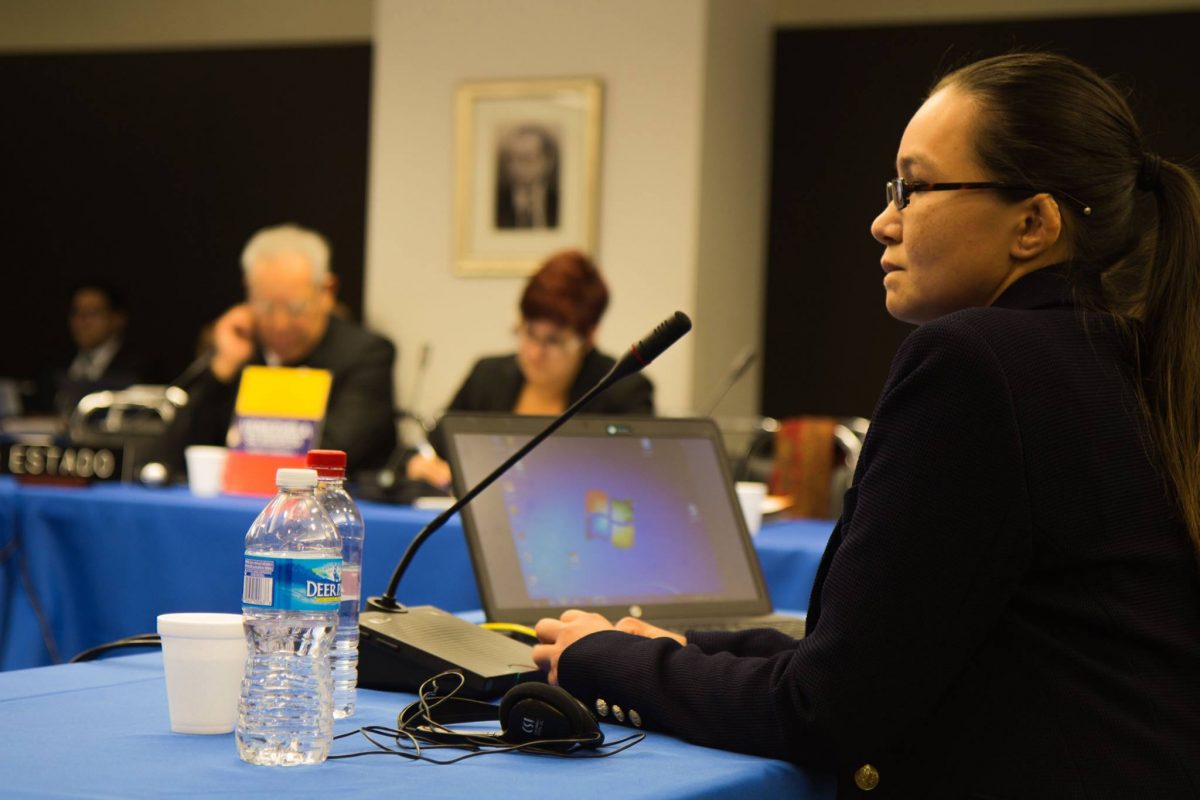






Washington, D.C., March 18th, 2015.– Linda Loaiza López Soto shared her testimony before the Inter-American Commission on Human Rights (IACHR) yesterday about the sexual violence she was subjected to 14 years ago and how her rights were violated due to gender stereotypes and irregularities present in Venezuela’s judicial system that led to her re-victimization.
When she was just 18 years old Loaiza was held captive in 2001 for three months during which time she was sexually abused, beaten, and threatened. Finally, on July 19, Loaiza managed to escape.
“Even though I informed the medical personnel and police that rescued me that I had been a victim of sexual abuse, I was denied access to the necessary medical tests required to show that there was evidence of rape. These tests were conducted a week after my rescue, when there was no longer an opportunity to obtain evidence,» said Loaiza.
Loaiza’s case highlights the institutional violence and re- victimization process that many women face by women living in Venezuela who are victims of gender-based and sexual violence. According to the Public Ministry’s 2014 Annual Report, there were 70.763 complaints of violence against women. Yet, only 0.7 % have been tried.
«This case underscores the judicial inefficiencies that arise from discrimination and gender stereotypes entrenched in criminal proceedings in Venezuela,» said Francisco Quintana, one of the victim’s representatives and Program Director for the Andean, North America and Caribbean Region for the Center of Justice and International Law (CEJIL).
«There is a pending judicial debt in Linda’s case and in the case of thousands Venezuelan women who are victimized and attacked when they try to raise their voices. These crimes are not isolated and kept in a pattern of impunity,» said Liliana Ortega of COFAVIC.
Additionally, the hearing was an opportunity for the victim and petitioners to denounce the challenges faced in trying cases of violence against women in Venezuela, where impunity seems to be the order of the day. According to a report by the UN Committee on gender discrimination issued in 2014, violence against women and girls «is widespread and on the rise.»
In the end, the victim requested the Commission to issue a decision on her case; to submit her case as Venezuela’s first gender violence case before the Inter-American Court of Human Rights; to ensure that the State complies with the fulfilling the right to truth, justice, and integral reparations; and guarantees to non-repetition to prevent similar crimes from ever being committed in the future.
¡Ayúdanos a continuar este trabajo crítico y urgente con una donación!
DONA AHORA